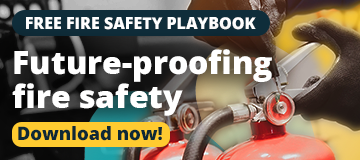
Avoid Being Red Flagged and Losing Work
In this blog post, Doug Aris, Head of Construction at Achilles outlines the red flags that could be costing your business work with larger contractors and other companies and organisations.
Things that may once have passed unnoticed are now a potential red flag for business management software and could result in projects and longer-term work being lost to competitors who are better prepared and able to present themselves as a safer, more solid prospect. For many projects principal contractors have always focused on eliminating risk in the supply chain, but as we enter the recovery period post-COVID, it is more of a concern than ever.
A major fear is a supply chain partner failing, which can have a significant impact on a project – creating a knock-on effect for the rest of the project, it results in delays and, in some cases, could carry financial implications for the main contractor.
Sub-contractors are coming under more intense scrutiny than ever, so it’s vital that business management software make sure they’re keeping their house in order to put themselves in the best position to secure new projects. While pricing will inevitably remain a major factor in procurement, there are many other considerations at play.
Polish Your PQQs
Failing to keep prequalification details and accreditations up to date is an obvious smoke signal for businesses, who will worry that it is a sign that your company is in trouble. If you haven’t done so already then take the time to give your prequalification questionnaires (PQQs) a spring clean – check they’re all in place and up to date.
PQQs are an essential tool for contractors so it’s important that you fully complete them in order to win lucrative new contracts. Make sure that all answers are appropriate and that you haven’t left anything out.
The fact that you have PQQs in place gives your customers confidence in the strength of your business and its good governance – maintaining a high level of accreditation will pay dividends.
Don’t Delay Policy Renewals
In the same vein, it’s vital to avoid letting insurance renewals slip – it will be a glaring concern for a business and may raise concerns around the viability of your company and its long-term future. Is there a reason that your business hasn’t renewed its insurance, or perhaps you cannot afford to pay at present – either way, neither scenario will give a potential customer confidence in dealing with you.
Don’t delay in renewing policies for another day and don’t give customers any cause for concern.
Recent References
The bar is higher than ever for businesses looking to join new supply chain frameworks – confidence is key. Solid references are a good way to demonstrate your track record, quality of work and reputation for delivery so it’s important to make sure those are in place should you need them. Make sure they’re recent and relevant – make things as easy as possible for your customer.
Safeguard Your Reputation

In today’s connected world it’s important to remember that references may not be looked at in isolation. Do you have social media networks or review pages and how do they portray your business?
ESG (Environmental, social and governance) is a major focus for organisations and we know that the supply chain plays a key role – many customers will only align themselves with businesses that share their values and uphold good governance. If you’ve experienced negative feedback that is public, or had any difficulties with your company’s reputation, it’s important to take steps to address that as quickly as possible. While it may not have impacted on your P&L – and so may not feel like an issue for the business – a potential customer may well take a different view.
Take Your Eco-credentials Seriously
Similarly, it’s also critical to make sure you measure up on the sustainability front. Sustainability is a major focus for the construction industry as it works towards a zero-carbon target in the not-too-distant future. Organisations are under intense scrutiny to make sure they’re playing their part, and their supply chain is an important part of that. Make sure you’re taking your eco-credentials seriously.
Take the time to take a critical look at your own sustainability strategy, pinpoint any weaknesses and put a plan in place to make improvements. No-one expects a comprehensive, all singing, all dancing programme of measures, but make sure you at least have the basics in place.
Consider Joining New Supplier Networks
Businesses that aren’t part of any supplier networks should think about whether that could be a new avenue for growth – it will certainly create news leads and may also make the business appear a safer, more attractive prospect when it comes to bidding for new work.
Achilles helps construction companies to reduce risk in their supply chain, so has a strong grasp of what their challenges and priorities are, and what they’re looking for in a supply chain partner – make sure you’re safe and risk free and eliminate any unnecessary red flags to stand yourself in the best stead in a competitive marketplace.


.png)